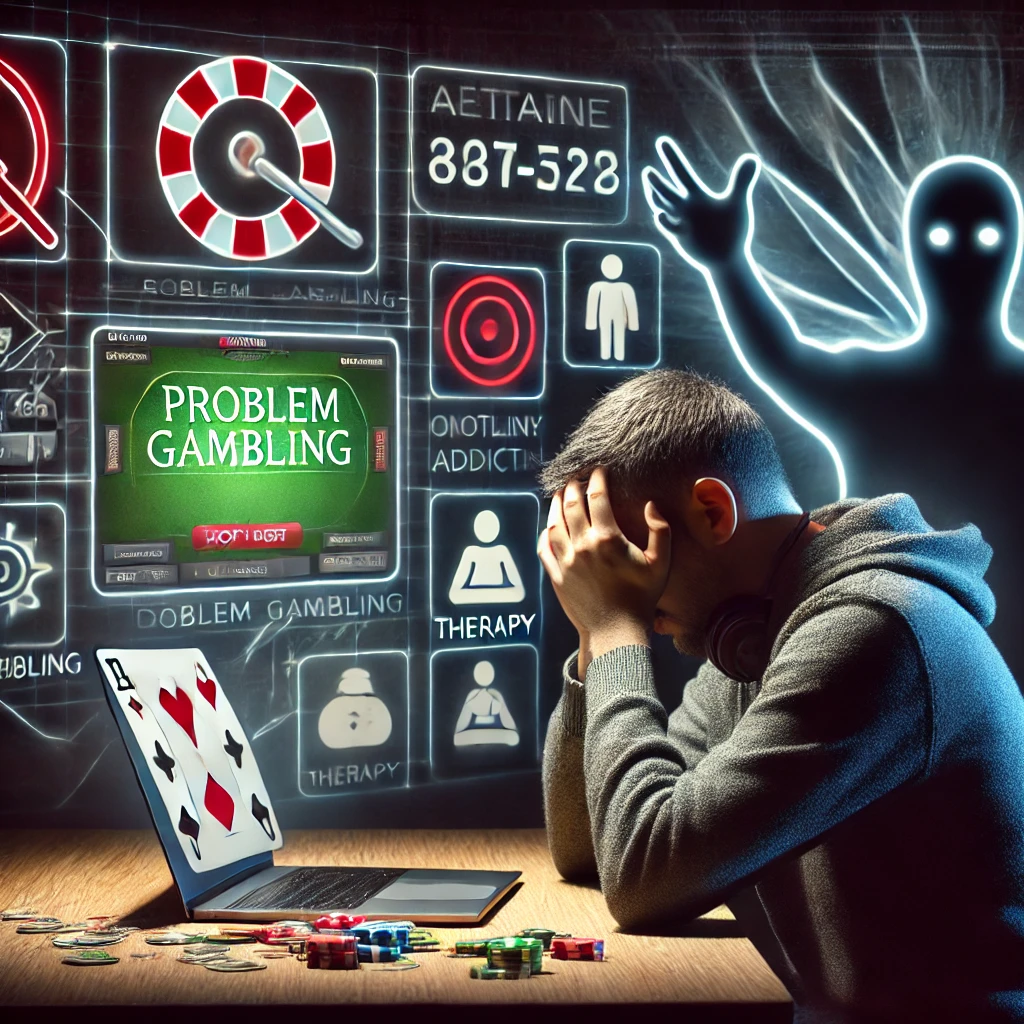Recognizing and Addressing Problem Gambling
Problem gambling can have significant negative impacts on an individual’s personal, professional, and financial well-being. This article explores the signs of problem gambling, its causes, and effective strategies for recognizing and addressing the issue.
Understanding Problem Gambling
Definition and Prevalence
Problem gambling refers to a pattern of gambling behavior that compromises, disrupts, or damages personal, family, or vocational pursuits. It is characterized by an inability to control or stop gambling, leading to negative consequences. Problem gambling affects individuals from all backgrounds and can have severe impacts on mental health, relationships, and financial stability.
Causes of Problem Gambling
The causes of problem gambling are complex and multifaceted. Factors contributing to problem gambling include psychological, social, and biological influences. Psychological factors may include a desire for excitement, escapism, or a means of coping with stress and anxiety. Social factors may involve peer pressure, cultural influences, or the availability and accessibility of gambling opportunities. Biological factors may encompass genetic predispositions or neurochemical imbalances that affect impulse control and decision-making.
Recognizing the Signs of Problem Gambling
Behavioral Indicators
Recognizing the signs of problem gambling is crucial for early intervention and support. Behavioral indicators of problem gambling may include betting more than one can afford, chasing losses, neglecting personal and professional responsibilities, and experiencing feelings of guilt or anxiety related to gambling activities. Bettors may also exhibit secretive behavior, mood swings, or increased irritability.
Emotional and Psychological Symptoms
Emotional and psychological symptoms of problem gambling may include feelings of restlessness, irritability, or anxiety when attempting to cut down or stop gambling. Individuals may experience withdrawal symptoms, such as insomnia, headaches, or increased heart rate. Problem gambling can also lead to feelings of depression, hopelessness, or suicidal thoughts.
Addressing Problem Gambling
Seeking Professional Help
Seeking professional help is essential for addressing problem gambling. Mental health professionals, such as therapists or counselors, can provide guidance, support, and evidence-based treatments for problem gambling. Cognitive-behavioral therapy (CBT) is a commonly used approach that helps individuals identify and change negative thought patterns and behaviors associated with gambling.
Support Groups and Resources
Support groups and resources are available to help individuals overcome problem gambling. Organizations such as Gamblers Anonymous, the National Council on Problem Gambling, and local helplines offer support, guidance, and resources for problem gamblers and their families. These resources provide a safe and non-judgmental environment for individuals to share their experiences, seek support, and work towards recovery.
Self-Help Strategies
Self-help strategies can be effective in addressing problem gambling. Bettors can set limits on their gambling activities, such as time and money limits, to regain control over their betting habits. Practicing mindfulness, stress management, and relaxation techniques can also help individuals cope with the urges to gamble and maintain emotional well-being. Engaging in hobbies, social activities, and physical exercise can provide alternative outlets for stress and anxiety, reducing the reliance on gambling.
Preventing Problem Gambling
Education and Awareness
Education and awareness are crucial for preventing problem gambling. Understanding the risks associated with gambling, recognizing the signs of problem gambling, and promoting responsible gambling practices can help individuals make informed decisions and avoid the pitfalls of excessive gambling. Educational programs, workshops, and campaigns can raise awareness about problem gambling and provide resources for support and intervention.
Regulatory Measures
Regulatory measures play a significant role in preventing problem gambling. Governments and regulatory bodies can implement policies and guidelines to promote responsible gambling, protect vulnerable individuals, and prevent illegal activities. These measures may include setting limits on advertising, enforcing age restrictions, and providing resources for problem gamblers. Collaboration between regulatory bodies, gambling operators, and public health organizations is essential for developing and implementing effective preventive strategies.
Conclusion
Recognizing and addressing problem gambling is crucial for promoting mental health, well-being, and responsible gambling practices. By understanding the causes and signs of problem gambling, seeking professional help, utilizing support groups and resources, and implementing self-help strategies, individuals can overcome the challenges of problem gambling and achieve long-term recovery. Education, awareness, and regulatory measures are essential for preventing problem gambling and promoting a safe and enjoyable betting experience for all.

